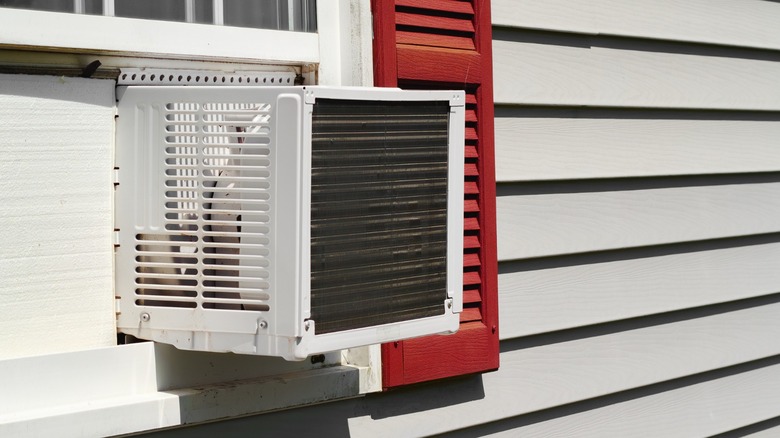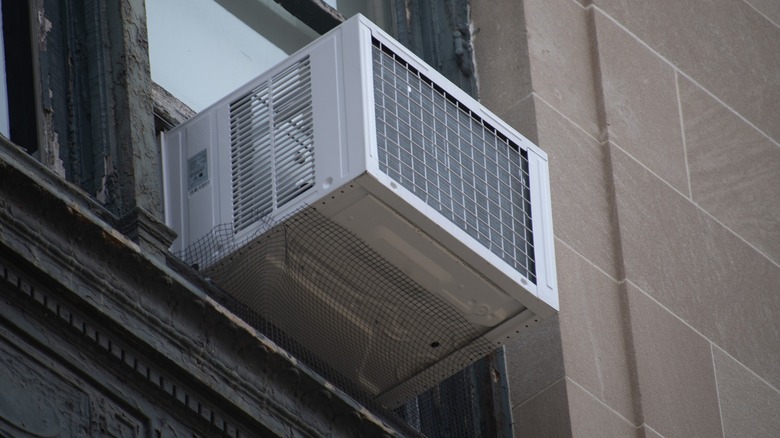Why Do Some HOA Communities Ban Window AC Units?
Window AC units have their perks. They're small and easy to install, relatively cheap so far as air conditioners go, and they don't use that much power. These pros make them the perfect package for renters, mobile homes, and people who need cooling on a low budget.
However, they do come with some disadvantages. For instance, because the compressor is inside the self-contained unit, it can get really noisy, especially as it ages and develops issues. Also, while still rare, there are cases of these units falling off their mounting outposts more than any other type, thanks to careless installers.
Other reasons, like aesthetics, may be why HOAs all over the country are banning window AC units. After all, the last thing you want while taking a stroll in the community is a 40-pound metal cube falling on your head. The ban probably makes sense on paper, because there are so many other types of ACs you can buy, so why risk the most precarious of them? But while an outright ban is definitely the easiest thing to do, it certainly puts residents who own them at an expensive, hot, and possibly lethal disadvantage.
Where are window units getting banned and is the government doing something about it?
When these kinds of bans are actually enforced, it can spark some seriously heated drama — literally. In 2015, The Atlanta Journal Constitution reported on an incident in Auburn, Washington, where one HOA sent out letters during a sweltering summer threatening residents with $30-per-day fines if they didn't remove their units. Never mind that some folks were just trying to get through a very hot period. "It's just a matter of survival," one resident told local reporters, after being warned her voting right could even be suspended over the issue, and a lien could be placed on her property.
It's a similar story down in Denton, Texas, in 2023, where the Denton Record-Chronicle reported that the Ashli Oaks mobile home park started enforcing a long-ignored window AC ban in the middle of 100-degree days. Notices warned of fines up to $350, and at least one resident — living with multiple sclerosis and diabetes — saw her indoor temperatures hit 103 degrees Fahrenheit. As a solution, management handed out portable stand units, but these proved to be inefficient and therefore more expensive. For people without thousands to drop on ductless mini-splits, it was a lose-lose situation.
Some states have decided that enough is enough. In Oregon, a 2022 law now blocks HOAs and landlords from banning portable cooling devices outright, unless they violate building codes or cause real safety issues. It's a rare example of policy putting people's health ahead of curb appeal, because in the middle of a heatwave, "looking uniform" isn't much comfort when you're sweating through your couch cushions.

